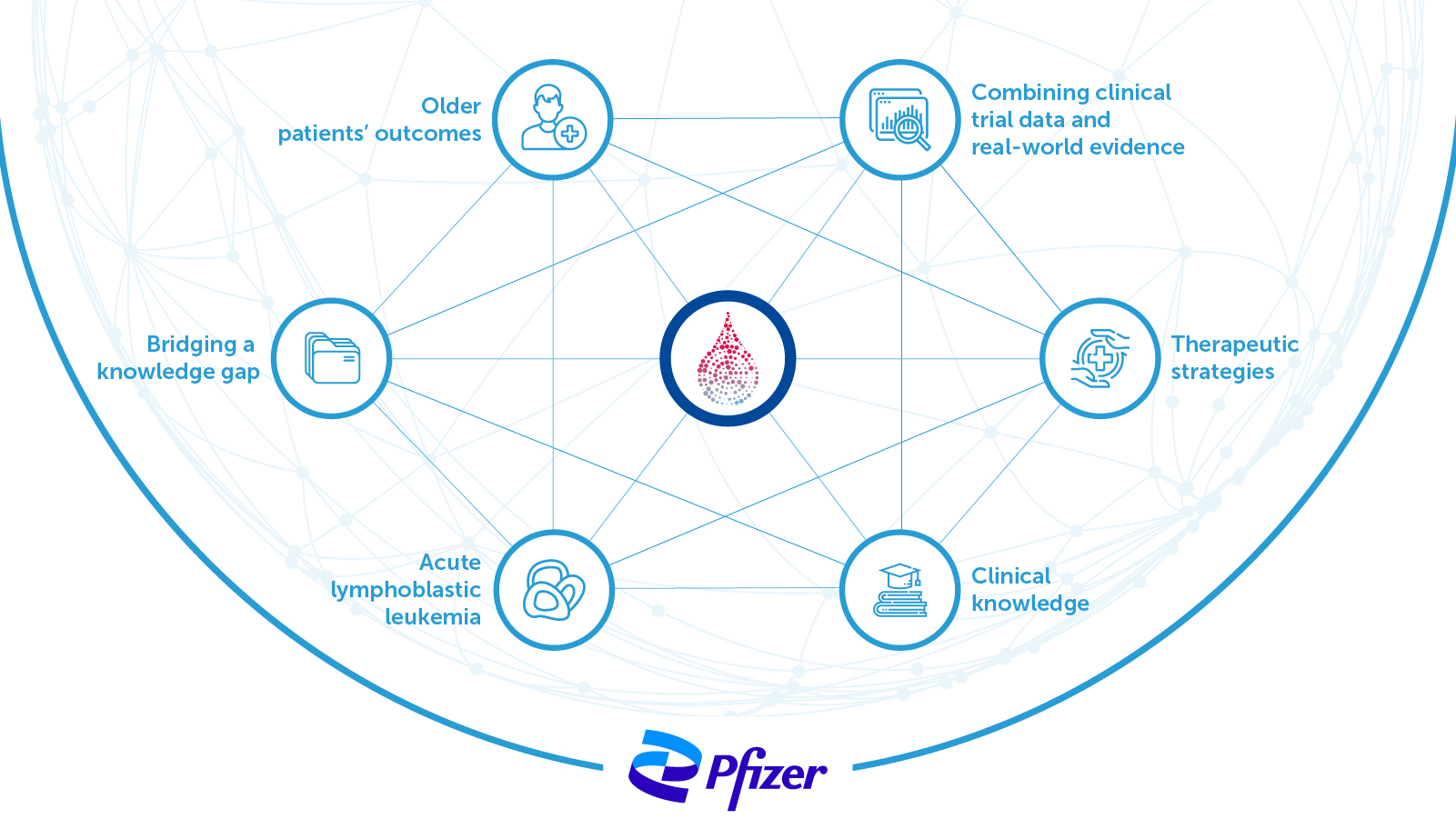Home> Research Projects> ALL-3: Exploring treatment patterns and outcomes in older adult B-ALL
Older adults (>55 years) represent an important part of the overall B-precursor acute lymphoblastic leukemia (B-ALL) patient population, however, only limited data are currently available on prognosis and treatment outcomes. Because existing datasets are sporadic and variable, it can be difficult for physicians to make optimal clinical management decisions for their older B-ALL patients.

Although B-precursor acute lymphoblastic leukemia (B-ALL) is the most common cancer of childhood, older adults can also be affected and a second peak in incidence occurs at age >55 years. Unfortunately, older patients are less able to tolerate the high-intensity treatment regimens used in B-ALL than their younger counterparts and early treatment-related mortality remains a key risk.
A lack of robust data has led to critical gaps in our clinical knowledge of older patient subgroups with B-ALL, particularly in the prediction of prognosis and outcomes from current therapy. Adults with B-ALL over 60 years of age tend to be poorly represented in both retrospective studies and clinical trials relative to their younger counterparts. As a result, datasets focused on older B-ALL cohorts are small and contain only patchy information. Cytogenetic testing is carried out less often in older patients so little is known about the frequency of key cytogenetic aberrations, many of which have consequences for treatment selection. More data is also needed on the prevalence of specific clinical features and comorbidities in patients of increased age, as well as better understanding of prognostic factors, particularly those correlated with relapse risk and early mortality.
This study will examine clinical data on older B-ALL patients from registries and clinical trials in order to shed light on these key unanswered questions. Harnessing the power of the HARMONY Big Data platform will enable data from multiple sources to be pooled and combined - providing the necessary sample size to generate more robust results. All patients aged over 55 years in the HARMONY dataset will be included in the study, with the aim of creating the largest global database on older adult B-ALL. A set number of subjects has not been specified but any patient aged 55 plus will be eligible for inclusion assuming certain key baseline data are available including: their age, gender, information about B-ALL biology, treatments administered and clinical outcomes. Data on minimal residual disease (MRD) response are also desirable but not necessary for inclusion. As the study itself will focus on a single group of patients, comparisons and statistical analyses are not planned. However, subgroup analyses will also be carried out to pinpoint any specific clinical factors which may be correlated with outcomes. The study will look at the impact of cytogenetics, clinical and disease-related features, comorbidities, treatment protocols, achievement of key response outcomes (e.g. complete response and minimal disease negativity) and stem cell transplant. The primary endpoint of the subgroup analyses will be median overall survival following a diagnosis of B-ALL.
Overall, this study aims to build an up-to-date picture of both clinical trial and real-world evidence on older adult B-ALL, which will be available to treating physicians around the world. Findings will afford a deeper insight into the key factors that influence prognosis and survival in these patients, enabling doctors to better predict clinical outcomes. Results will also help shape the design of future clinical trials for new treatments such as immunotherapies and targeted therapies so that they better reflect the older B-ALL population. Ultimately, it is hoped that knowledge gained from study will lead to improved therapeutic strategies and optimized outcomes for patients.
Publications related to this research project can be found on the following links:
Author(s): Amin Turki, Nina Neuendorff, Riley Taiji, Sulaiman Lawal, Francis Vekeman, Samy Gallienne, Raluca Ionescu-Ittu, Paule Tétreault-Langlois, Michael Doubek, Alexander Neuhof, Jurjen Versluis, Anita Rijneveld, Javier Elicegui, Amir Enshaei, Anthony Moorman, Alexander Russell-Smith